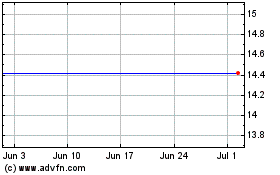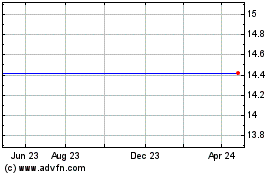By Ann M. Simmons and Thomas Grove
MOSCOW -- Russian President Vladimir Putin made a display of
support for beleaguered Belarusian leader Alexander Lukashenko
Friday in their first meeting since Minsk sparked Western outrage
earlier this week by forcing a European airliner to land and
arresting a dissident journalist onboard.
State television showed the leaders embracing, and both mocked
international condemnation of the incident ahead of talks at Mr.
Putin's residence at the seaside resort of Sochi. Mr. Putin even
suggested the two go swimming.
But Mr. Lukashenko's increasing political and economic isolation
from the West is pushing the leader dangerously close to Russia and
providing Mr. Putin an opening to advance long-held plans to deepen
the integration between Russia and the former Soviet republic.
European Union leaders have agreed to impose a new round of
sanctions against Belarus and ban its airlines from entering the
bloc's airspace and airports as punishment for forcing an Irish
commercial airliner carrying a dissident journalist to land and
then arresting him. The impending sanctions could target financial
transactions and the country's key industries such as oil and
potash, a pillar of Belarus's economy and a major source of taxes
and foreign currency, EU officials said this week.
Friday night in Washington, the White House said it would
reimpose full blocking sanctions against nine Belarusian
state-owned enterprises previously granted relief by the Treasury
Department. The U.S. is also working with allies on "developing a
list of targeted sanctions against key members of the [Alexander]
Lukashenko regime associated with ongoing abuses of human rights
and corruption, the falsification of the 2020 election, and the
events of May 23," according to a White House statement.
Mr. Lukashenko's gambit with Ryanair Flight 4978 may have
delivered him the prize he sought when he arrested Roman
Protasevich, a journalist who helped broadcast antigovernment
protests last year. But the move, the latest in a series of
transgressions by the Belarusian leader, gives the Kremlin an
opportunity to take advantage of Mr. Lukashenko's increasingly
vulnerable position.
"Every new step toward isolation of Lukashenko by the West
inevitably increases his dependency on Putin," said Artyom
Shraibman, founder of Minsk-based political consulting firm Sense
Analytics.
Ahead of talks Friday, Mr. Lukashenko told Mr. Putin he had a
briefcase of documents showing the danger the flight posed and why
he grounded it. His government said the flight was grounded because
it had information that a bomb was on board. No bomb, however, was
found during an hourslong search of the plane.
Mr. Putin went on to compare the situation to the grounding of
former Bolivian President Evo Morales' plane in 2013 when there was
suspicion that the former National Security Agency
contractor-turned whistleblower Edward Snowden may have been on
board. He added that at the time there was no condemnation.
Mr. Putin said they would have a wide-ranging discussion on
political and economic ties.
"We had agreed on these talks even before the latest...emotional
outburst," said Mr. Putin, referring to criticism Mr. Lukashenko
has faced from the West. "Even without these events we have a lot
to talk about."
Mr. Putin emphasized that Russia is a longtime supporter of the
Belarusian economy.
In recent months, as Mr. Lukashenko increasingly has become an
international pariah, Mr. Putin has pledged more financial and
military support for Belarus, signaling Moscow's intention to
bolster its embattled junior partner -- support that could
ultimately bind Minsk more tightly to Russia.
"Putin probably sees it as a way to press Lukashenko to make
more concessions in the integration bargaining," said Eugene Rumer,
the director of Carnegie's Russia and Eurasia Program.
For years, Mr. Putin has been trying to coax Belarus to join
Russia as part of a larger, unified state, as they were during the
Soviet era. But Mr. Lukashenko has largely rejected that, wary of
risking his country's sovereignty.
On Friday, Mr. Lukashenko firmly ruled out the possibility of
his country being absorbed by Russia.
"The world has changed. There are no idiots among us today to
enslave a friendly state in a colonial manner," he told a meeting
in Minsk of government representatives of the Commonwealth of
Independent States, before departing to meet Mr. Putin. "This is
not possible today. Any attempt to take over the state, or to unite
it with some kind of force, will cause a terrible rebuff in this
state."
But the fallout surrounding the Belarusian leader's decision to
ground the Ryanair plane could make it harder to resist the
Kremlin's longstanding efforts to draw Belarus closer, analysts
said, as the country faces the threat of a financial chokehold from
the West.
"Russia treats economic dependence as a political tool, [this
means] political dependence, too," Mr. Shraibman said.
For years, Mr. Lukashenko, who has been in power for 26 years,
has successfully played Moscow and the West off each other, using
the EU as a hedge against the Kremlin. Since his violent crackdown
on protesters who accused him of stealing a presidential vote last
year and the political opposition who led them, his options have
shrunk.
Many see his diversion of a Ryanair plane this week as a nail in
the coffin of EU-Belarusian ties and the end of his flirtations
with the West. His decision to meet with Mr. Putin so soon
afterward is a strong statement of which camp he has joined.
"There was a time when there was an opportunity for the West to
engage with Lukashenko," said Matthew Rojansky, head of the
D.C.-based Wilson Center's Kennan Institute. "Now his dependence on
Moscow seems pretty complete."
Last year, when the Belarusian leader was facing demonstrations
by those who alleged he stole an August presidential election, Mr.
Putin agreed to provide Belarus with a state loan of $1.5 billion.
He assembled a law-enforcement team to help shore up Mr. Lukashenko
if protests against him spiral out of control and said the two
countries would conduct joint military events almost monthly for a
year.
At the time, Mr. Putin congratulated the Belarusian leader on
his victory in the vote. He later warned European leaders against
interfering in Belarus as protests engulfed the country demanding
that Mr. Lukashenko step down.
Earlier this year, Russia and Belarus agreed to establish joint
training centers in each nation for paratroopers and air-defense
troops, Belarus's Defense Ministry said.
The two countries will hold joint military exercises later this
year with thousands of Russian troops in Belarus. Some analysts see
those exercises as Moscow's way of boosting its influence over
Belarus and flexing Russia's military muscle on the eastern flank
of the North Atlantic Treaty Organization.
"Lukashenko, for all his peculiarities, is still a person who is
perceived as an enemy of the collective West, an enemy of NATO, and
who will not allow the alliance to move closer to Russia at the
expense of Belarus," said Stanislav Byshok, a political scientist
at the CIS-Europe Monitoring Organization, an international think
tank in Moscow.
And this is one reason why the Kremlin continues to throw its
support behind Mr. Lukashenko, despite the fact that "the attitude
towards him is far from being rosy here in Russia," Mr. Byshok
said.
--Valentina Ochirova contributed to this article.
Write to Ann M. Simmons at ann.simmons@wsj.com and Thomas Grove
at thomas.grove@wsj.com
(END) Dow Jones Newswires
May 28, 2021 21:57 ET (01:57 GMT)
Copyright (c) 2021 Dow Jones & Company, Inc.
Ryanair (LSE:RYA)
Historical Stock Chart
From Mar 2024 to Apr 2024

Ryanair (LSE:RYA)
Historical Stock Chart
From Apr 2023 to Apr 2024
